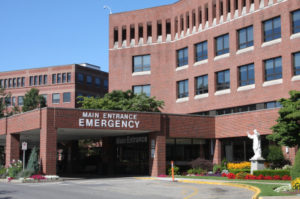Legislature to Participate in PA Medicaid Expansion Talks
The Corbett administration plans to spend the coming weeks bringing the state legislature into it Medicaid expansion deliberations.
While the administration reportedly has been working to develop a Medicaid expansion program that meets its own requirements for financial responsibility and will pass federal muster, it has been doing so largely without consulting with the state legislature, which has been in recess since early July. While legislative approval is not needed for most aspects of Medicaid expansion, Department of Public Welfare Secretary Bev Mackereth told the Pittsburgh Post-Gazette that the administration will begin consulting with the legislature.
Medicaid expansion, originally mandated by the Affordable Care Act, was made optional for states by a Supreme Court decisions. Only about half of the states have definitively acted to expand their programs, and while Pennsylvania officials previously expressed strong opposition to expansion, they now appear on course to unveil an expansion proposal this fall.
Read more about the administration’s latest efforts, and its intention to involve the legislature, in this Pittsburgh Post-Gazette report .
.




